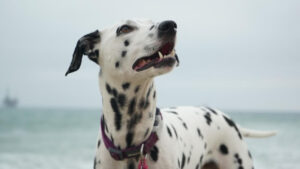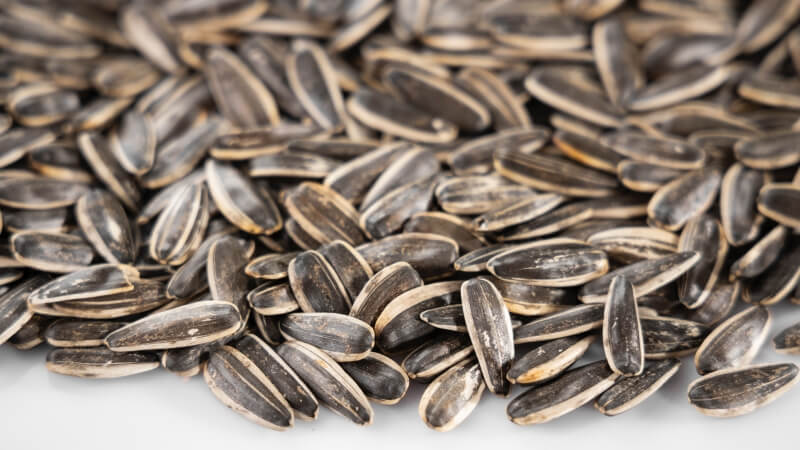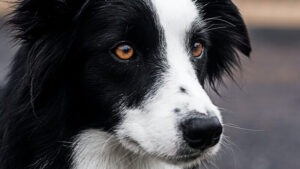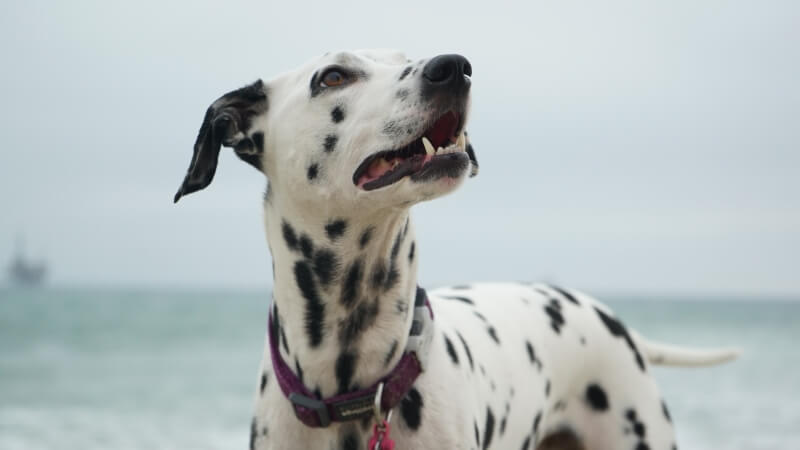
Dog Puzzle Feeder vs Interactive Toys: Which Is Best For Your Pooch?
Choosing the right plaything for your furry friend – be it a dog puzzle feeder or interactive toys – is essential for their mental and

Can dogs eat sunflower seeds? It’s a question that may have crossed your mind while snacking on these crunchy treats.
We all want to share our favorite snacks with our four-legged companions, but when it comes to certain foods, caution is key.
In this comprehensive guide, we’ll delve into the world of sunflower seeds and their compatibility with our canine friends. Let’s explore the nutritional aspects, potential risks, and even some exciting feeding options.
Sunflower seeds are packed with nutrients, making them an enticing snack for both humans and dogs. They are a rich source of protein, fiber, and healthy fats. These seeds also provide essential vitamins and minerals, such as vitamin E, magnesium, and selenium.
Additionally, sunflower seeds contain antioxidants, which can have potential health benefits for dogs, just as they do for humans. These nutrients can support your dog’s overall health, skin, and coat.
One notable nutrient found in sunflower seeds is vitamin E. This antioxidant plays a crucial role in maintaining healthy cells and protecting them from damage caused by free radicals. It’s also known to support the immune system and can contribute to a shinier coat for your furry friend.
While sunflower seeds are nutritious, there are some risks associated with feeding them to dogs.
One potential danger lies in the hard, outer shell of sunflower seeds. These shells can be challenging for dogs to digest and may lead to gastrointestinal discomfort or blockages.
Chewing on the shells can also pose a risk of tooth damage. To make sunflower seeds safer for your dog, consider purchasing shelled seeds, which eliminate this particular risk.
If you’re determined to feed your dog sunflower seeds with shells, ensure they are ground or crushed to minimize the risk of blockages.
However, this is not recommended, as it’s easier to purchase shelled sunflower seeds or opt for alternative treats altogether.
When choosing sunflower seeds for your dog, be cautious of flavored or seasoned varieties. Many commercially available sunflower seeds are heavily salted or seasoned with spices that can be harmful to dogs.
Excessive salt intake can lead to sodium ion poisoning, a condition that can cause vomiting, diarrhea, tremors, and even more severe health issues. Always opt for unsalted or lightly salted sunflower seeds if you decide to share them with your dog.
While a small amount of salt is essential for your dog’s health, too much can be detrimental. Dogs, like humans, can enjoy the occasional treat, but it’s crucial to keep an eye on their sodium intake.
Like humans, dogs can develop allergies to certain foods, including sunflower seeds. Symptoms of food allergies in dogs may include itching, skin problems, digestive issues, and even respiratory distress. If you suspect your dog has an allergy to sunflower seeds, consult your veterinarian for guidance and consider discontinuing them from their diet.
If you’re still curious about sharing sunflower seeds with your canine companion, there are safe ways to do it.
The Smart Shake Ball is an excellent option for turning snack time into an engaging and mentally stimulating activity for your dog.
Fill it with shelled sunflower seeds, and your dog will enjoy rolling it around to dispense the seeds. This not only makes snack time fun but also provides mental and physical enrichment.
Interactive feeders like the Smart Shake Ball allow your dog to work for their treats, providing mental stimulation that can be especially beneficial for dogs with high energy levels or those prone to boredom. These toys can help prevent destructive behaviors and promote a healthy, active mind.
Specialized sunflower seed dog bowls are designed with safety in mind.
They often have compartments that prevent your dog from consuming the seeds too quickly, reducing the risk of choking or overindulgence. These bowls also help keep your dog’s dining area tidy.
When choosing a sunflower seed dog bowl, look for one that is made of safe, durable materials and is easy to clean. Proper hygiene is essential to ensure your dog’s health.
Interactive puzzle feeders are another fantastic option for dogs that enjoy a challenge. Place shelled sunflower seeds in the puzzle feeder, and your dog will have to work to access their snack. This type of interactive feeding can keep your dog mentally engaged and prevent them from eating too quickly.
Puzzle feeders come in various designs and difficulty levels, allowing you to tailor the experience to your dog’s preferences and skill level. They can also be an excellent tool for dogs that tend to eat their food too quickly, as they encourage slower, more deliberate eating.
Remember that every dog is unique, and individual factors should be considered when deciding if sunflower seeds are a good treatment option.
Different dogs may have different reactions to sunflower seeds. While some dogs may tolerate them well, others might experience digestive issues or allergies. It’s essential to observe how your specific dog responds to sunflower seeds and make decisions accordingly.
If you’re introducing sunflower seeds to your dog for the first time, start with a small amount and monitor their reactions closely. Signs of an adverse reaction may include vomiting, diarrhea, excessive scratching, or any unusual behavior. If you notice any of these symptoms, discontinue feeding sunflower seeds immediately and consult your veterinarian.
Your dog’s age, weight, and overall health play a significant role in determining whether sunflower seeds are a suitable addition to their diet. Older dogs or those with certain health conditions may need special dietary considerations. Consult with your veterinarian to ensure that sunflower seeds align with your dog’s nutritional needs.
Puppies, for example, have different dietary requirements than adult dogs. Their digestive systems are still developing, and they may not tolerate certain foods as well. It’s generally advisable to avoid introducing sunflower seeds to puppies until they are at least six months old and their digestive systems are more mature.
Determining whether or not to feed sunflower seeds to your dog isn’t a straightforward answer. While some dogs may enjoy them without any issues, others might not react well.
Always prioritize your pet’s safety and well-being. And remember, it’s never a bad idea to consult with your veterinarian before introducing new snacks into your dog’s diet.
With the right precautions, you can ensure your furry friend enjoys their treats without any worries.
When deciding to include sunflower seeds in your dog’s diet, consider the following steps:
In conclusion, can dogs eat sunflower seeds? The answer is yes, but with some important caveats. Sunflower seeds can be a nutritious and enjoyable treat for many dogs, provided they are given in moderation and without added seasonings. Always prioritize your dog’s safety and consider their individual needs and preferences.
By following the guidelines and product recommendations mentioned above, including slow-feeding options like puzzle feeders and interactive food mazes, you can make snack time both safe and enjoyable for your furry friend.
Remember that when it comes to your dog’s diet, their well-being should always be the top priority.
While sunflower seeds can offer some health benefits, it’s crucial to approach them with caution and in consultation with your veterinarian. With the right information and responsible feeding practices, you can ensure that your beloved pet enjoys a healthy and happy life.
Can I give my dog sunflower seed butter instead of whole sunflower seeds?
Answer: Yes, you can give your dog sunflower seed butter as an alternative to whole sunflower seeds. Make sure it’s unsalted and doesn’t contain any harmful additives. Remember to offer it in moderation due to its calorie content.
Are there any specific sunflower seed brands that are safe for dogs?
Answer: While there are dog-specific treats and products on the market, it’s crucial to prioritize the quality of the sunflower seeds themselves. Look for reputable brands that offer unsalted, shelled sunflower seeds without additives or seasonings.
Can sunflower seeds help with my dog’s skin and coat health?
Answer: Yes, the vitamin E and healthy fats in sunflower seeds can contribute to a shinier coat and overall skin health. However, it’s essential to consult with your veterinarian to ensure that sunflower seeds align with your dog’s specific nutritional needs.
How should I introduce sunflower seeds to my dog’s diet for the first time?
Answer: When introducing sunflower seeds to your dog for the first time, start with a small amount and monitor their reactions closely. Look for signs of discomfort, allergies, or adverse reactions. If everything appears fine, gradually incorporate sunflower seeds into their diet.
Are there any other human foods that are safe for dogs to enjoy as treats?
Answer: Yes, several human foods are safe for dogs in moderation, including plain cooked chicken, carrots, and blueberries. However, it’s important to research each food item thoroughly and consult your veterinarian to ensure they are suitable for your dog’s specific needs and dietary restrictions. Always introduce new foods gradually and in small quantities.


Choosing the right plaything for your furry friend – be it a dog puzzle feeder or interactive toys – is essential for their mental and

Wondering if a puzzle feeder could revolutionize your pet’s mealtime into an exciting challenge? This unique device promises to engage your furry friend both mentally

For passionate pet enthusiasts, a puzzle feeder is more than just a toy; it’s a critical tool for mental stimulation and dietary control for their

Are you ready to dive deeper into the world of puzzle feeder and embark on a journey to ensure your furry friends remain mentally stimulated?

Choosing the right plaything for your furry friend – be it a dog puzzle feeder or interactive toys – is essential for their mental and

Wondering if a puzzle feeder could revolutionize your pet’s mealtime into an exciting challenge? This unique device promises to engage your furry friend both mentally

For passionate pet enthusiasts, a puzzle feeder is more than just a toy; it’s a critical tool for mental stimulation and dietary control for their

Are you ready to dive deeper into the world of puzzle feeder and embark on a journey to ensure your furry friends remain mentally stimulated?
Copyright © 2024 puppypuzzlefeeder. All Rights Reserved.